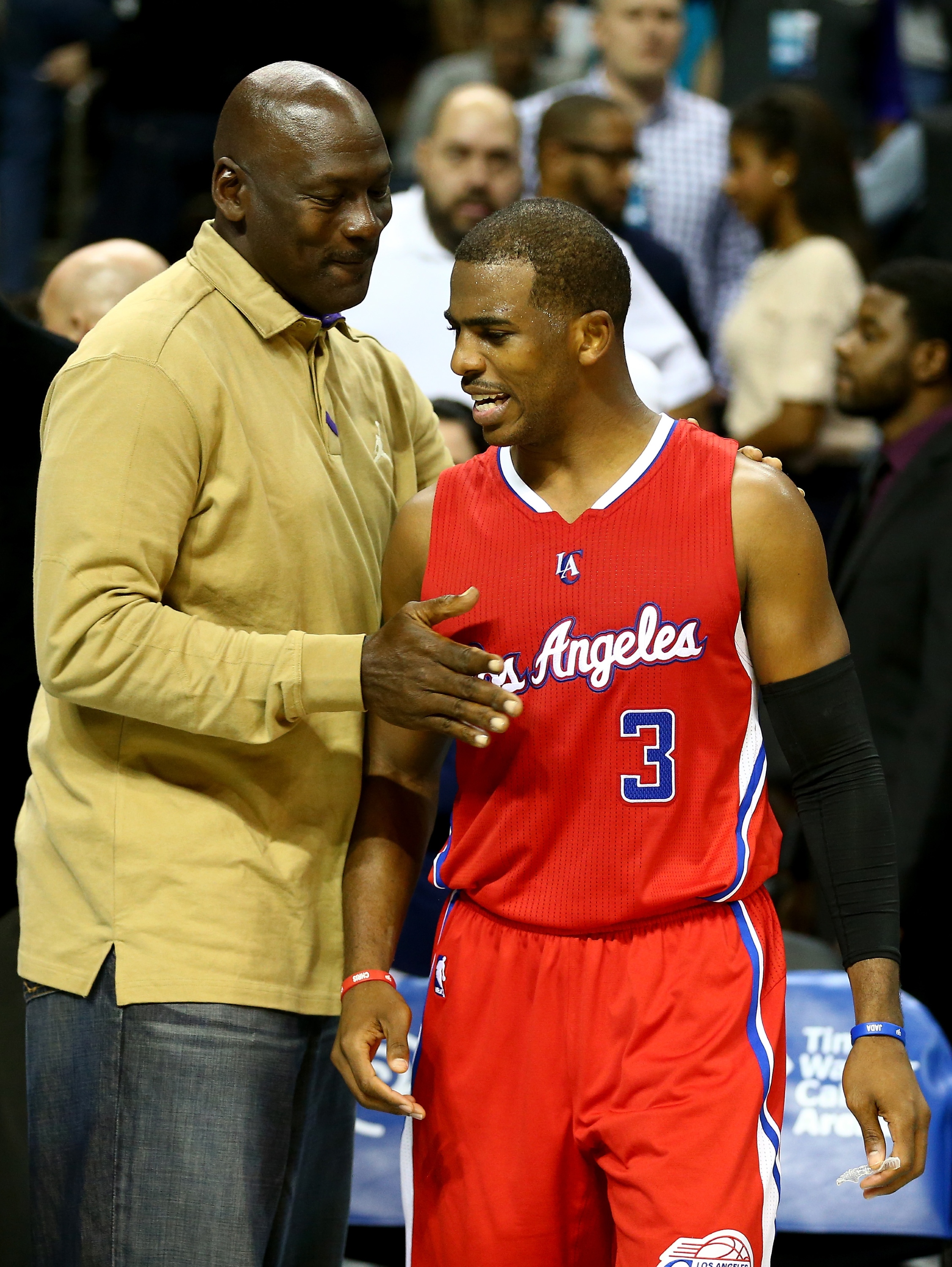NBA says owner Michael Jordan can’t pick Jordan Brand endorsers
The $250,000 fine imposed upon the Los Angeles Clippers Tuesday for presenting then-free agent DeAndre Jordan with an impermissible third-party endorsement with Lexus has brought greater attention to the various ways in which NBA franchises may choose to circumvent the salary cap. With every collective bargaining negotiation featuring talk of competitive balance and the necessity for a lower cap, preserving the sanctity of those rules matters to the league’s ability to claim an even playing field for all 30 franchises. Teams must pay their players via league-approved salaries and nothing else.
[Follow Dunks Don’t Lie on Tumblr: The best slams from all of basketball]
Yet that system poses a problem for Charlotte Hornets owner Michael Jordan, the only member of that group who made his fortune in the business of basketball. As the namesake and public face of Nike’s Jordan Brand subsidiary, the six-time NBA Finals MVP is expected to work with player-endorsers to build both their brand and that of the company. How can the league reconcile that job with his role as Hornets head honcho?
The answer is apparently to keep Jordan from making any decisions involving a conflict of interest. According to ESPN’s Darren Rovell, the NBA will bar Jordan from picking endorsers for Jordan Brand:
Zach Harper of Eye on Basketball lists those athletes as current Hornets Michael Kidd-Gilchrist and Cody Zeller and former Bobcats/Hornets Stephen Jackson, Gerald Wallace, Bismack Biyombo, Gerald Henderson, and Jeffrey Taylor (who last month signed a one-year deal with Real Madrid of Spain’s ACB). While none of those players stand out as especially prominent Jordan Brand athletes — they are certainly not on the level of Russell Westbrook and Carmelo Anthony — it’s easy to see how the promise of added money via an endorsement deal could give the Bobcats/Hornets an advantage, even if it only involved minor additions to rookie-scale salaries. (It should also be noted that there is no evidence that Jordan has done anything of the sort.)
[Yahoo Sports Fantasy Football: Sign up and join a league today!]
However, assessing the fairness of this ruling also requires that we admit that Jordan is markedly different kind of NBA owner. If James Dolan were to offer a prospective free agent a lucrative gig as JD and the Straight Shot’s version of Bez, then that agreement would be immediately identifiable as something outside of normal contract negotiations. But Jordan’s role with Nike means that he needs to choose endorsers who reflect both his public image and the needs of the company’s brand. This rule limits his ability to do his non-ownership business in a way that it doesn’t for all 29 other owners, no matter if they are as famous as Mark Cuban or as publicly unknown as Larry Tannenbaum. (He’s the chairman of the company that owns the Toronto Raptors.)
It would take much more column space to decide if this state of affairs is just for Jordan, who should theoretically be just as free to go about his business as anyone else in an ownership seat, but who has also chosen to submit to rules enforcing competitive balance. What’s abundantly clear, though, is that the NBA’s structure makes it very difficult to make a seamless transition from massively popular player (which Jordan still is) to owner. Many of the league’s rules benefit one group but not the other, to the point where it’s difficult to imagine how Jordan could work so closely with so many players while fighting them for revenue during every lockout. Frankly, it’s a wonder these issues don’t come up more often.
– – – – – – –
Eric Freeman is a writer for Ball Don’t Lie on Yahoo Sports. Have a tip? Email him at [email protected] or follow him on Twitter!
